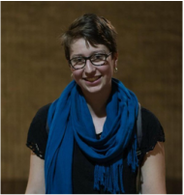
This is my third month working at the New England Jewish Labor Committee. It’s been a wholly new experience but also one that makes total sense to me given my personal Jewish journey. I’ve known for some time that I wanted to act on my Jewish values of social justice. JLC’s work building solidarity between the Jewish community and the labor movement is my opportunity to do just that.
I grew up in a community strong in Jewish religious and cultural traditions. My parents were committed to immersing my sisters and me in our heritage, sending us to Jewish day school and regularly attending first a Conservative, then a Reconstructionist synagogue. We learned Hebrew, became familiar with Jewish texts and prayers, and celebrated Shabbat each week. My parents’ commitment to their communities, both in their jobs as public service workers for the federal government and in our synagogues, taught me the civic and political dimensions of being Jewish by their example.
My paternal grandfather’s story of escape and endurance as a Holocaust survivor was present in our household as well. During a class trip to the Holocaust Museum in Washington, D.C., I looked up a picture of Grandpa Ben in the museum database. I was shocked to see the strong family resemblance between him at 18, recovering in Sweden after being liberated from Auschwitz, and myself.
As I grew older, I began to recognize some of the limitations of the Jewish institutions surrounding me - the Jewish day school that was not financially accessible to my family, the Hebrew schools and the camps that refused to accommodate my sister Rachel, who is on the autism spectrum and the Jewish youth group that only allowed expression of certain views on Israel. Around this time, I was introduced to a new, different Jewish community in the form of Habonim Dror Camp Moshava.
Camp Moshava was and still is the pivotal experience that cemented my Jewish identity in relation to justice. The camp is part of Habonim Dror, an international Labor Zionist movement that uses informal education to empower youth to work toward justice both in Israel, Palestine, and in North America.
Camp Moshava, one of seven summer camps in North America, functions on a communal and youth-led model. As campers, we did physical labor each day to maintain the upkeep of our space - my favorite was always working in the garden. Later, on staff, we made decisions collectively with a circle-based, consensus model. We observed Shabbat in an informal, joyful and profoundly meaningful way, mostly rooted in Jewish dance and song.
Our Jewish practice and our education on issues of race, gender, class, sexual identity and the environment were all rolled into the same experience. We thought critically about our identities as American Jews and the implications: about our socioeconomic privilege to attend this summer camp and the imperative to fight for economic justice for all, and about our responsibilities toward working for a just and peaceful Israeli society. We were taught that we can and should turn our dreams for the world into reality.
Above all, the most compelling thing that I continue to take from Habonim Dror is that my identity as a Jew is not something I can turn on and off at will - it drives who I am and what I do. My Judaism is inherently political, as well as religious and cultural, and it contains certain imperatives to work toward justice not just for Jews, but for all people.
As a student at Tufts, I set out to deepen my understanding of systemic economic and racial injustice. My first contact with on-the-ground struggles for justice and with JLC came during the fight to stop the university from cutting janitorial jobs last spring. The real pain and urgency for these workers became tangible for me, as did the selfless commitments of the student activists. After months of community advocacy, meetings and rallies, the university administration began making cuts this past summer, although they cut fewer janitors than they had originally planned to. The janitors’ resilience and the students’ determination to continue fighting for workers’ rights on campus have made me see the ongoing importance of this work.
When I graduated, I felt strongly that I needed to find work reflected my values and put them into action, that took responsibility as a member of my Jewish community and felt morally and spiritually fulfilling. I was interested in exploring the liberatory potential of Judaism. JLC embodied and enacted that potential. JLC’s stand with working people in their struggles for economic justice stems from who we are as Jews.
Now at JLC, I’m learning so much about workplace equity issues and the amazing workers and leaders who put so much of themselves toward fighting for just working conditions with the Fight for $15 and the Paid Family and Medical Leave bills. I’m starting to understand the victories of the labor movement, the work ahead of us, and the invaluable role of faith groups in these powerful coalitions.
I am still working as an educator and seeking to connect Jewish values with justice via JLC’s new campus initiative. The initiative seeks to engage Jewish college students in histories of Jews in the labor movement, to mobilize them into ongoing efforts for workplace justice in the Boston area. Working here at the JLC has made me feel that I, along with our many partners, am involved in the Jewish pursuit of building a new, better, more just future.
Lily Sieradzki is currently working as Program Manager at the New England JLC. She has previously worked as Educational Director and Inclusion Coordinator at Habonim Dror Camp Moshava. This is her second year teaching kindergarten at the Boston Workmen's Circle Shule.

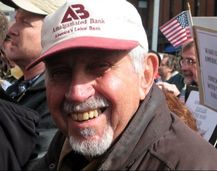
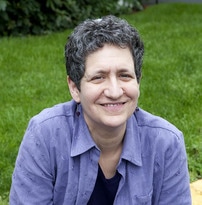
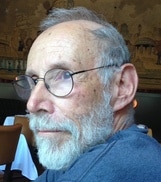
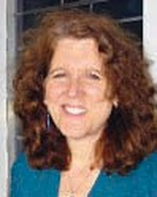
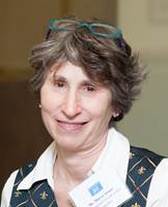

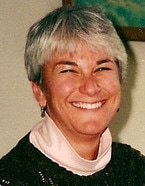
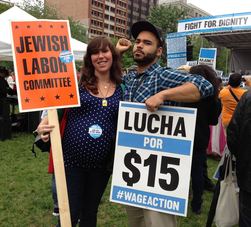

 RSS Feed
RSS Feed
